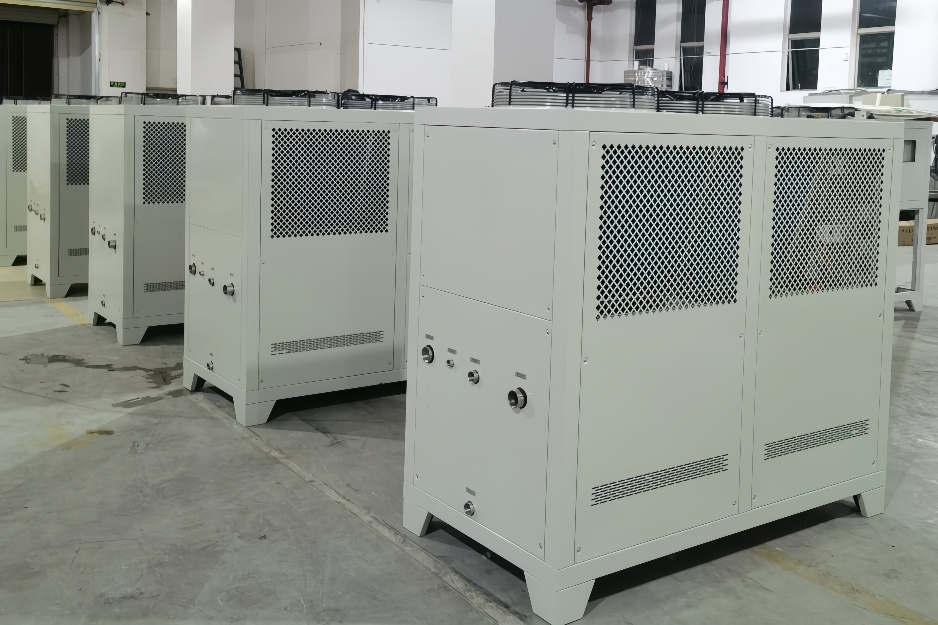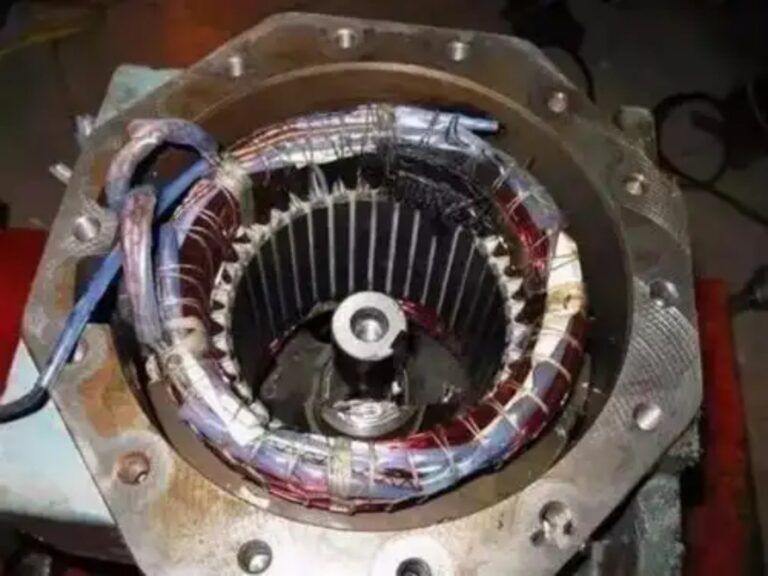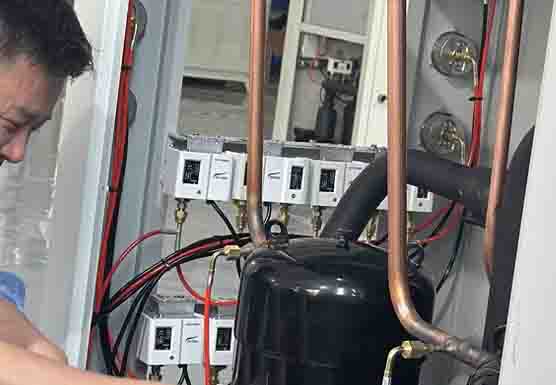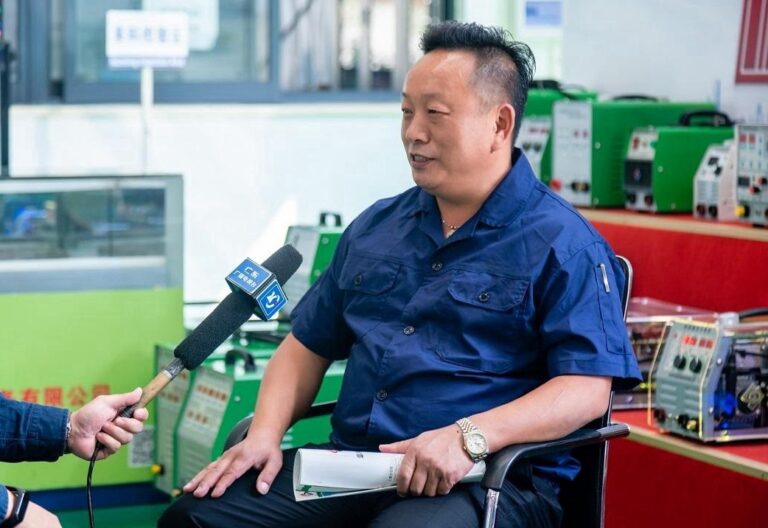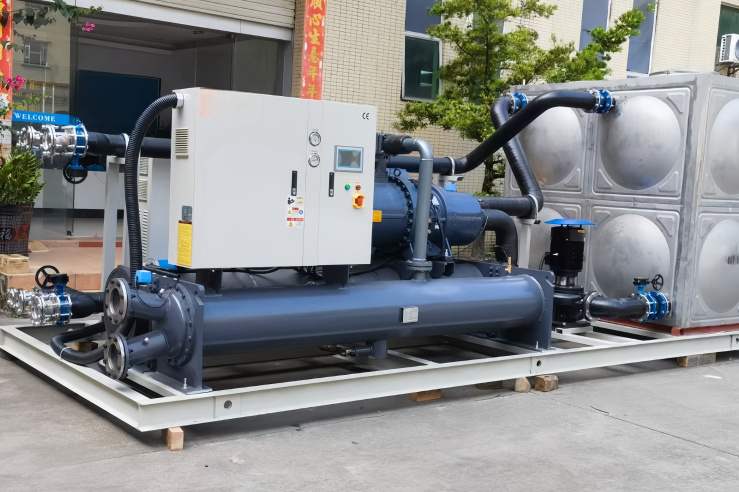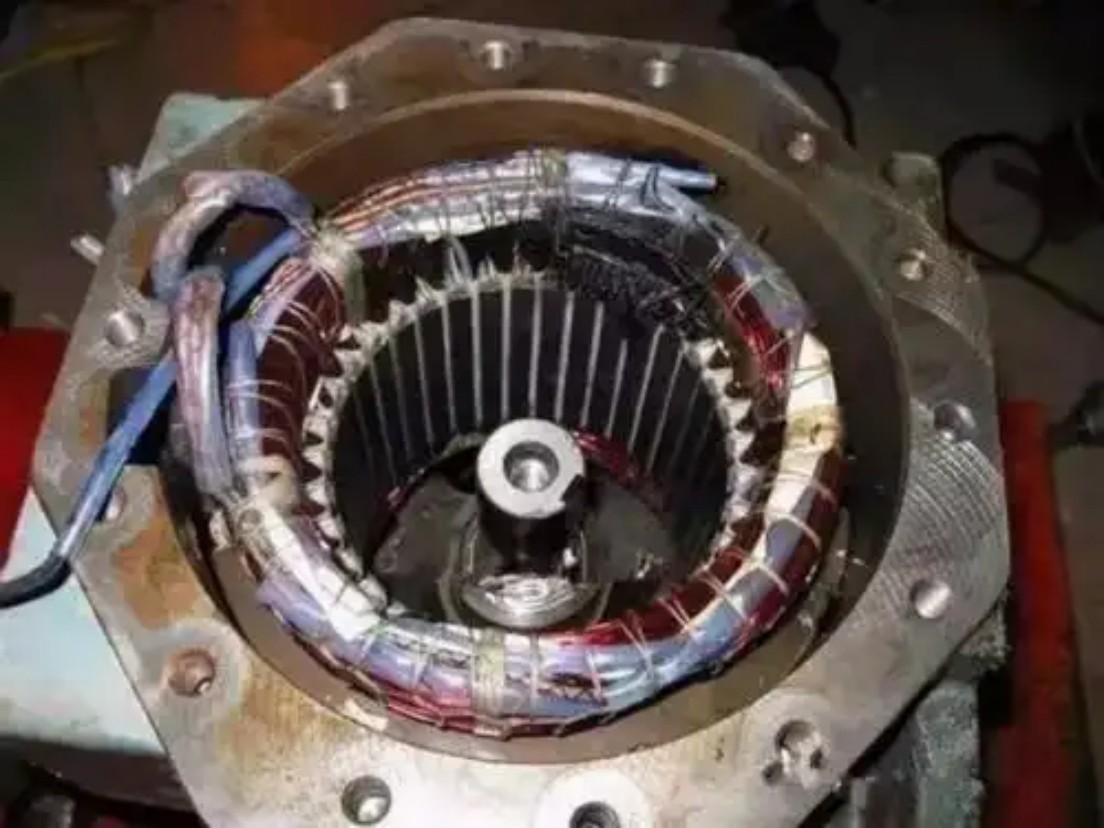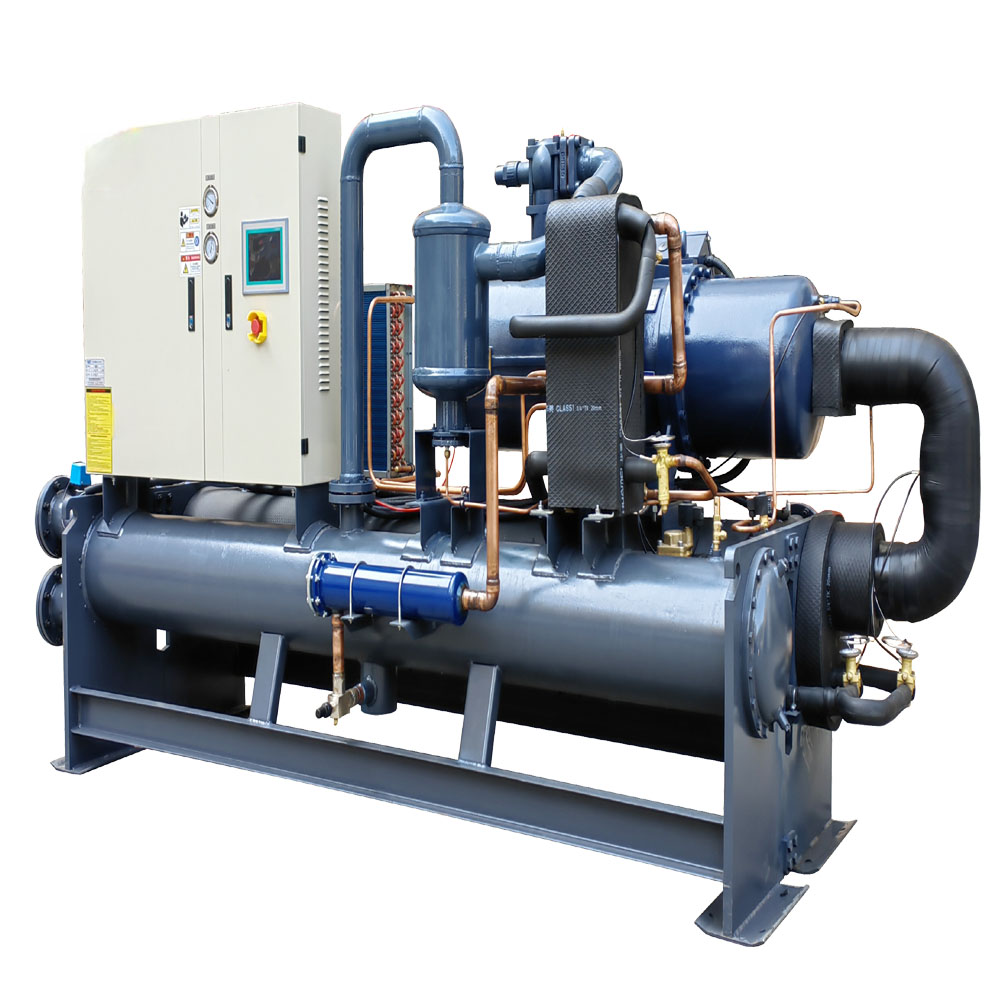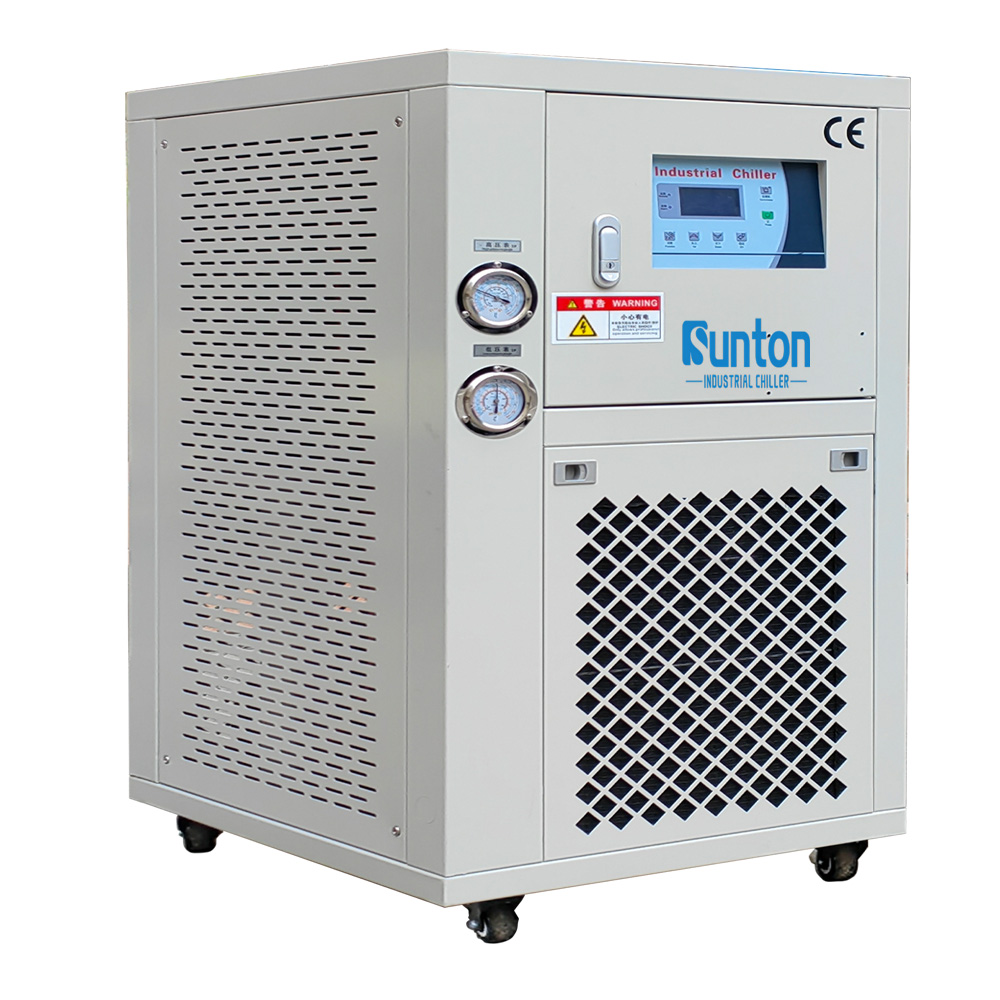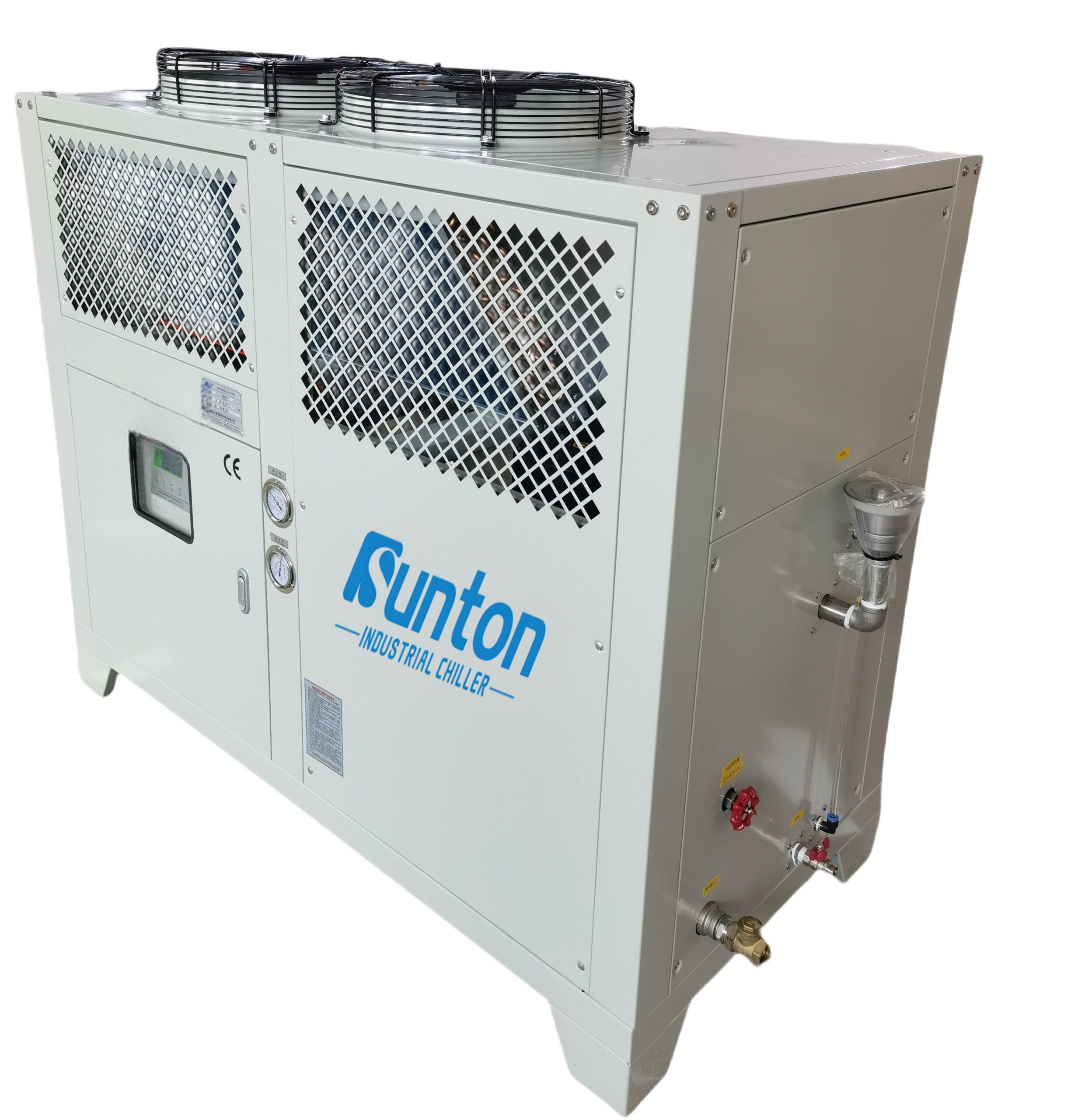-
Далиншань Индустриальный Гуандун
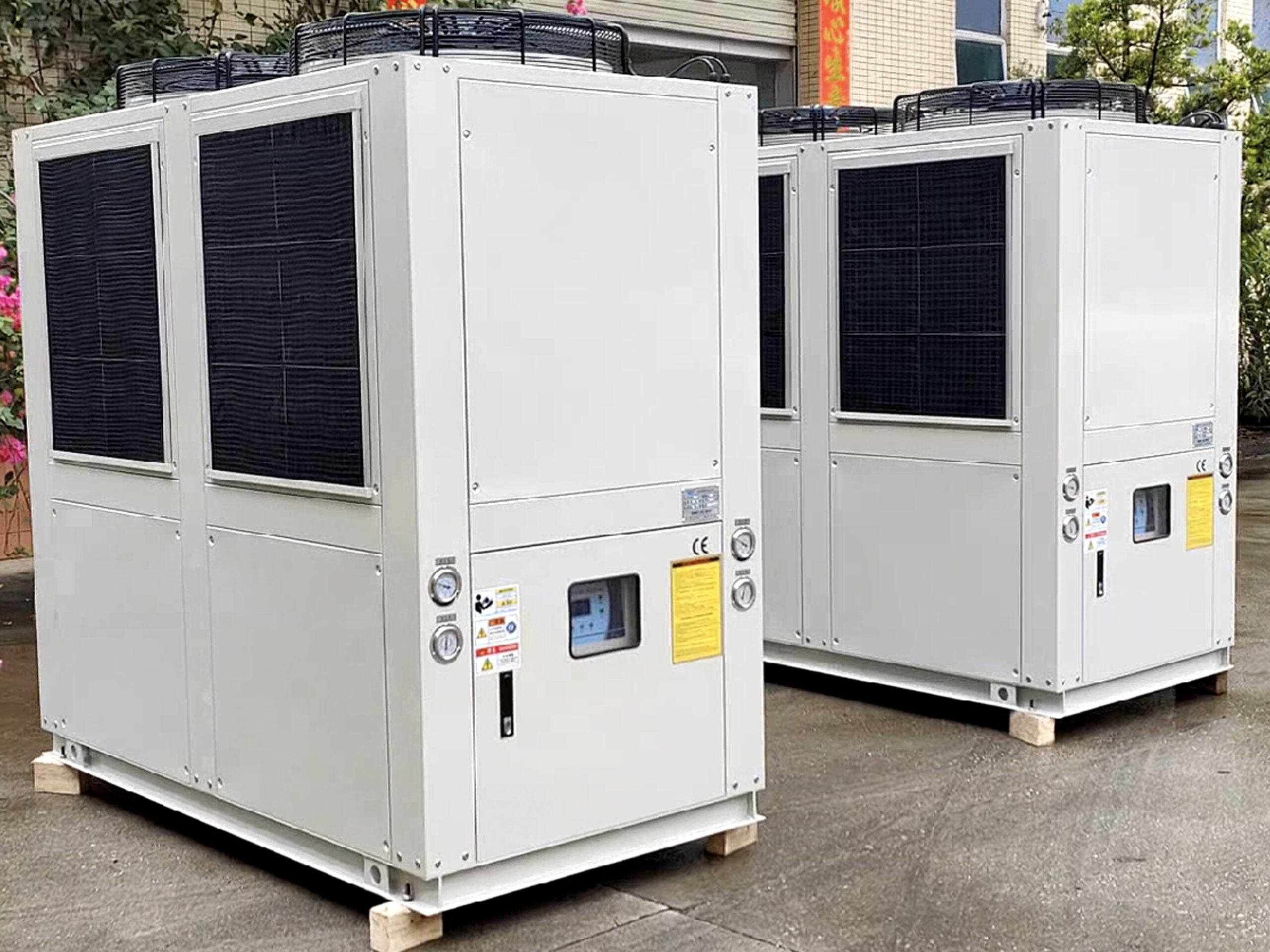
советы по более эффективному использованию промышленного чиллера в 2023 году
Максимизируйте эффективность чиллера в 2023 году: ваше руководство по оптимальной производительности промышленного чиллера
В этой статье подробно рассматриваются критические аспекты оптимизации эффективности коммерческих и промышленных охладителей. Она содержит практические идеи для различных отраслей промышленности, включая промышленность по производству пластмасс и резины, машиностроение, пищевую промышленность и производство напитков, химическую и фармацевтическую промышленность, электронную промышленность, лазерную промышленность, полиграфию, медицинскую промышленность, лаборатории и научно-исследовательские институты, а также центры обработки данных. Как завод по производству промышленных охладителей, мы понимаем нюансы производительности охладителей и стремимся поделиться своим опытом, чтобы помочь вам достичь максимальной эксплуатационной эффективности, снизить потребление энергии и сэкономить на затратах на электроэнергию. Это руководство стоит прочитать, поскольку оно сочетает в себе знания из первых рук с практическими советами и стратегиями, что делает его бесценным ресурсом для тех, кто хочет повысить производительность своей системы охлаждения в 2023 году.
Оглавление
Какие основные типы чиллеров используются в коммерческих и промышленных условиях?
В коммерческих и промышленных условиях чиллеры играют важную роль в поддержании оптимальных рабочих температур. Два основных типа чиллеров — с воздушным и водяным охлаждением. Чиллеры с воздушным охлаждением использовать окружающий воздух для отвода тепла от хладагента, в то время как чиллеры с водяным охлаждением использовать воду из градирни или другого источника воды. Выбор правильного типа охладителя зависит от нескольких факторов, включая конкретные потребности в охлаждении, доступное пространство и экологические соображения.
Каждый тип охладителя имеет свои преимущества. Охладители с воздушным охлаждением, как правило, проще устанавливать и обслуживать, что делает их подходящими для небольших приложений или там, где водные ресурсы ограничены. С другой стороны, охладители с водяным охлаждением часто более энергоэффективны, особенно в более крупных системах или областях с высокой температурой окружающей среды. Например, центральный охладитель с винтовым охлаждением могут обеспечить значительную экономию энергии для крупномасштабных промышленных предприятий благодаря своим превосходным возможностям теплопередачи.
Как регулярное техническое обслуживание влияет на эффективность чиллера?
Регулярное обслуживание необходимо для обеспечения эффективной работы вашего чиллера и поддержания его пиковой производительности. Такие задачи по обслуживанию, как очистка конденсаторных змеевиков, проверка уровня хладагента и осмотр компрессора, имеют решающее значение. Пренебрежение этими задачами может привести к снижению эффективности, увеличению потребления энергии и более высоким счетам за электроэнергию. Фактически, надлежащее обслуживание чиллера может повысить эффективность до 20% и потенциально сэкономить на расходах на электроэнергию.
Хорошо обслуживаемый чиллер гарантирует, что все компоненты работают правильно, что снижает риск поломок и продлевает срок службы оборудования. Например, чистый конденсаторный змеевик обеспечивает оптимальную теплопередачу, позволяя чиллеру охлаждать более эффективно. Кроме того, регулярные проверки уровня хладагента не позволяют компрессору работать сильнее, чем необходимо, тем самым экономя энергию и уменьшая износ. Чтобы повысить эффективность работы вашего чиллера, важно запланировать регулярные проверки и техническое обслуживание квалифицированными специалистами.
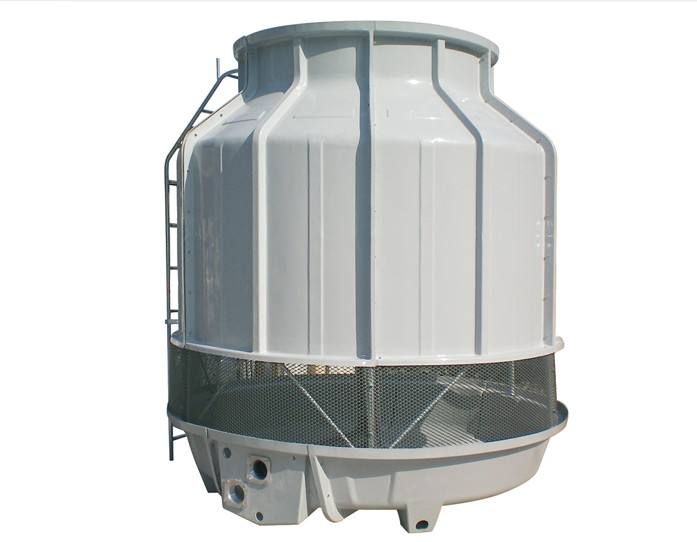
Какую роль играет очистка воды в оптимизации производительности чиллера?
Правильная очистка воды имеет решающее значение для поддержания эффективности системы охлаждения, особенно в чиллерах с водяным охлаждением. Качество воды напрямую влияет на процесс теплопередачи, а плохое качество воды может привести к образованию накипи, коррозии и биологическому росту в системе. Эти проблемы могут значительно снизить эффективность работы чиллера, препятствуя потоку воды и снижая эффективность теплопередачи.
Реализация комплексной программы очистки воды гарантирует, что вода, используемая в системе охлаждения, не содержит загрязняющих веществ и минералов, которые могут вызвать образование накипи и коррозию. Такие методы, как фильтрация, химическая обработка и регулярный мониторинг качества воды, являются важнейшими компонентами эффективной программы очистки воды. Например, использование кожухотрубчатый теплообменник благодаря специальной системе очистки воды можно значительно повысить эффективность теплопередачи и продлить срок службы оборудования.
Может ли модернизация таких компонентов, как компрессоры, и использование частотно-регулируемых приводов повысить эффективность работы чиллера?
Модернизация ключевых компонентов, таких как компрессор, и внедрение частотно-регулируемых приводов (VFD) может значительно повысить эффективность охладителя. Современные компрессоры рассчитаны на более высокую эффективность и могут значительно снизить потребление энергии по сравнению со старыми моделями. Кроме того, VFD позволяют охладителю регулировать свою производительность на основе фактической потребности в охлаждении, а не работать с постоянной скоростью.
Частотно-регулируемые приводы особенно эффективны в системах с изменяющимися нагрузками на охлаждение. Регулируя скорость двигателя компрессора, VFD могут оптимизировать использование энергии и поддерживать постоянную температуру подачи охлажденной воды. Это не только повышает эффективность, но и снижает износ оборудования, что приводит к снижению затрат на техническое обслуживание и увеличению срока службы. Например, промышленный чиллер, используемый в пищевой промышленности и производстве напитков, может получить значительную выгоду от VFD, поскольку они могут подстраиваться под изменяющиеся уровни производства и поддерживать оптимальные рабочие температуры без потери энергии. Спиральный чиллер с водяным охлаждением является идеальным выбором для таких применений благодаря своей энергоэффективной конструкции и способности выдерживать переменные нагрузки.
Насколько важен контроль и регулировка температуры подачи охлажденной воды?
Мониторинг и регулировка температуры подачи охлажденной воды жизненно важны для оптимизации эффективности охладителя. Температура подачи охлажденной воды должна быть установлена на максимально возможном уровне, который все еще соответствует требованиям охлаждения приложения. Такая практика снижает количество энергии, необходимое для охлаждения воды, что приводит к снижению потребления энергии и эксплуатационных расходов.
Регулярный мониторинг температуры подачи охлажденной воды и внесение необходимых корректировок гарантирует, что охладитель не переохлаждает воду, что может привести к потере энергии. Современные системы охлаждения часто оснащены передовыми системами управления, которые позволяют точно управлять температурой и контролировать ее. Эти системы могут автоматически регулировать температуру подачи охлажденной воды на основе потребностей в охлаждении в реальном времени, что еще больше повышает эффективность. Например, центр обработки данных может использовать центральный охладитель с воздушным охлаждением и винтовым компрессором с усовершенствованным контролем температуры для поддержания оптимальных условий эксплуатации при минимальном потреблении энергии.
Каковы наиболее распространенные причины неэффективности коммерческих чиллеров?
Несколько факторов могут способствовать неэффективности коммерческих чиллеров. Одной из распространенных причин является неправильное обслуживание, приводящее к таким проблемам, как загрязнение конденсаторных змеевиков, низкий уровень хладагента и неисправная работа компрессоров. Другим важным фактором является плохое качество воды, что может привести к образованию накипи и коррозии, снижению эффективности теплопередачи и увеличению потребления энергии.
Кроме того, эксплуатация чиллера при низких нагрузках или с чиллером слишком большого или слишком малого размера для данного применения может привести к снижению эффективности. Чиллер слишком малого размера будет с трудом удовлетворять потребности в охлаждении, в то время как чиллер слишком большого размера будет часто включаться и выключаться, тратя энергию. Использование устаревших или неэффективных компонентов также может способствовать неэффективности. Например, старые компрессоры могут быть не такими энергоэффективными, как новые модели. Решение этих проблем путем регулярного обслуживания, надлежащей очистки воды и обновления компонентов может значительно повысить эффективность чиллера.
Как градирня влияет на общую эффективность системы охлаждения?
А градирня играет решающую роль в общей эффективности системы охлаждения с водяным охлаждением. Градирни отводят тепло от воды, используемой в конденсаторе чиллера, что позволяет чиллеру работать более эффективно. Эффективность градирни напрямую влияет на способность чиллера отводить тепло, что в свою очередь влияет на его энергопотребление.
Эффективное обслуживание градирни, включая регулярную очистку и водоподготовку, гарантирует, что башня может эффективно отводить тепло из воды. Это позволяет охладителю работать при более низких температурах конденсации, повышая его эффективность и снижая потребление энергии. Грамотно обслуживаемые градирни также помогают предотвратить такие проблемы, как образование накипи и биологический рост, которые могут ухудшить теплопередачу и снизить общую эффективность системы.
Каковы преимущества оптимизации эффективности чиллера?
Оптимизация эффективности чиллера обеспечивает многочисленные преимущества, включая значительную экономию энергии и снижение эксплуатационных расходов. Эффективные чиллера потребляют меньше энергии, что приводит к снижению счетов за электроэнергию и уменьшению выбросов углекислого газа. Повышение эффективности также снижает риск поломок оборудования и продлевает срок службы чиллера, что приводит к снижению затрат на техническое обслуживание и замену.
Повышенная эффективность также может улучшить общую производительность системы охлаждения, обеспечивая постоянное и надежное охлаждение для различных применений. Например, в пластмассовой и резиновой промышленности поддержание стабильной температуры имеет решающее значение для качества продукции. Эффективная система охлаждения обеспечивает постоянное соблюдение требуемых температур, что приводит к повышению качества продукции и сокращению отходов.
Какие передовые технологии могут еще больше повысить эффективность работы чиллера?
Передовые технологии, такие как интеллектуальные системы управления и системы управления энергопотреблением, могут еще больше максимизировать эффективность охладителя. Интеллектуальные системы управления используют данные в реальном времени для оптимизации работы охладителя, регулируя такие параметры, как температура подачи охлажденной воды и скорость компрессора, чтобы соответствовать нагрузке на охлаждение. Эти системы также могут предоставить ценную информацию о производительности охладителя, помогая выявлять области для улучшения.
Системы управления энергопотреблением интегрируют чиллер с другими системами здания, такими как HVAC и освещение, для оптимизации общего энергопотребления. Эти системы могут автоматически регулировать настройки в зависимости от занятости, времени суток и других факторов, чтобы минимизировать потребление энергии. Например, в лабораторных условиях система управления энергопотреблением может координировать работу охладитель молока с другим оборудованием для обеспечения оптимальной эффективности и стабильного охлаждения.
Как предприятия могут гарантировать максимальную эффективность работы своих чиллеров?
Чтобы обеспечить работу своего охладителя с максимальной эффективностью, предприятиям следует уделять первостепенное внимание регулярному обслуживанию, внедрять надлежащую очистку воды и рассматривать возможность модернизации компонентов. Регулярное обслуживание гарантирует, что все части охладителя функционируют правильно, в то время как комплексная программа очистки воды предотвращает образование накипи и коррозии, поддерживая оптимальную теплопередачу.
Модернизация до более эффективных компонентов, таких как современные компрессоры и частотно-регулируемые приводы, может значительно снизить потребление энергии и повысить общую эффективность. Кроме того, внедрение передовых технологий, таких как интеллектуальные системы управления и системы управления энергопотреблением, может дополнительно оптимизировать работу чиллера и предоставить ценную информацию о производительности. Предпринимая эти шаги, предприятия могут гарантировать, что их чиллер работает с максимальной эффективностью, что приводит к значительной экономии энергии и снижению эксплуатационных расходов. Например, использование взрывозащищенный охладитель на химическом заводе может не только обеспечить безопасность, но и обеспечить эффективное охлаждение при правильном обслуживании и модернизации.
Часто задаваемые вопросы
Каков наилучший способ повышения эффективности охладителя?
Лучший способ повысить эффективность чиллера — это сочетание регулярного обслуживания, надлежащей очистки воды и стратегических обновлений компонентов. Регулярное обслуживание обеспечивает оптимальную работу, а очистка воды предотвращает образование накипи и коррозию. Модернизация до энергоэффективных компрессоров и использование частотно-регулируемых приводов также может значительно повысить производительность.
Как часто следует проводить техническое обслуживание коммерческого чиллера?
Коммерческий чиллер следует обслуживать не реже одного раза в год, хотя для оптимальной производительности рекомендуется проводить обслуживание два раза в год. Регулярное обслуживание помогает выявлять и устранять потенциальные проблемы до того, как они приведут к снижению эффективности или поломкам.
Каковы признаки неэффективного чиллера?
Признаки неэффективного чиллера включают в себя возросшие счета за электроэнергию, непостоянное охлаждение, необычные шумы и частое включение и выключение. Эти симптомы часто указывают на скрытые проблемы, которые необходимо устранить посредством технического обслуживания или обновления компонентов.
Как качество воды влияет на производительность чиллера?
Качество воды существенно влияет на производительность охладителя, влияя на эффективность теплопередачи. Низкое качество воды может привести к образованию накипи, коррозии и биологическому росту, что снижает эффективность и увеличивает потребление энергии. Реализация надлежащей программы очистки воды имеет важное значение для поддержания оптимальной производительности.
Может ли использование ЧРП действительно экономить энергию?
Да, использование VFD может экономить энергию, позволяя охладителю регулировать свою производительность в зависимости от фактической потребности в охлаждении. Это означает, что охладитель не должен работать на полную мощность все время, что снижает потребление энергии и износ оборудования.
Какой тип компрессора наиболее эффективен для коммерческого чиллера?
Современные винтовые компрессоры часто считаются наиболее эффективными для коммерческих охладителей. Они обеспечивают высокую эффективность в широком диапазоне рабочих условий и могут значительно снизить потребление энергии по сравнению со старыми поршневыми или спиральными компрессорами.
Ключевые выводы
- Регулярное техническое обслуживание имеет важное значение для поддержания эффективности работы чиллера и предотвращения поломок.
- Правильная очистка воды играет решающую роль в оптимизации теплопередачи и предотвращении образования накипи и коррозии.
- Модернизация таких компонентов, как компрессоры, и использование частотно-регулируемых приводов могут значительно повысить эффективность.
- Мониторинг и регулировка температуры подаваемой охлажденной воды помогает снизить потребление энергии.
- Передовые технологии, такие как интеллектуальные системы управления и управления энергопотреблением, могут дополнительно повысить производительность чиллера.
- Оптимизация эффективности работы чиллера приводит к значительной экономии энергии, снижению эксплуатационных расходов и повышению общей производительности системы.
